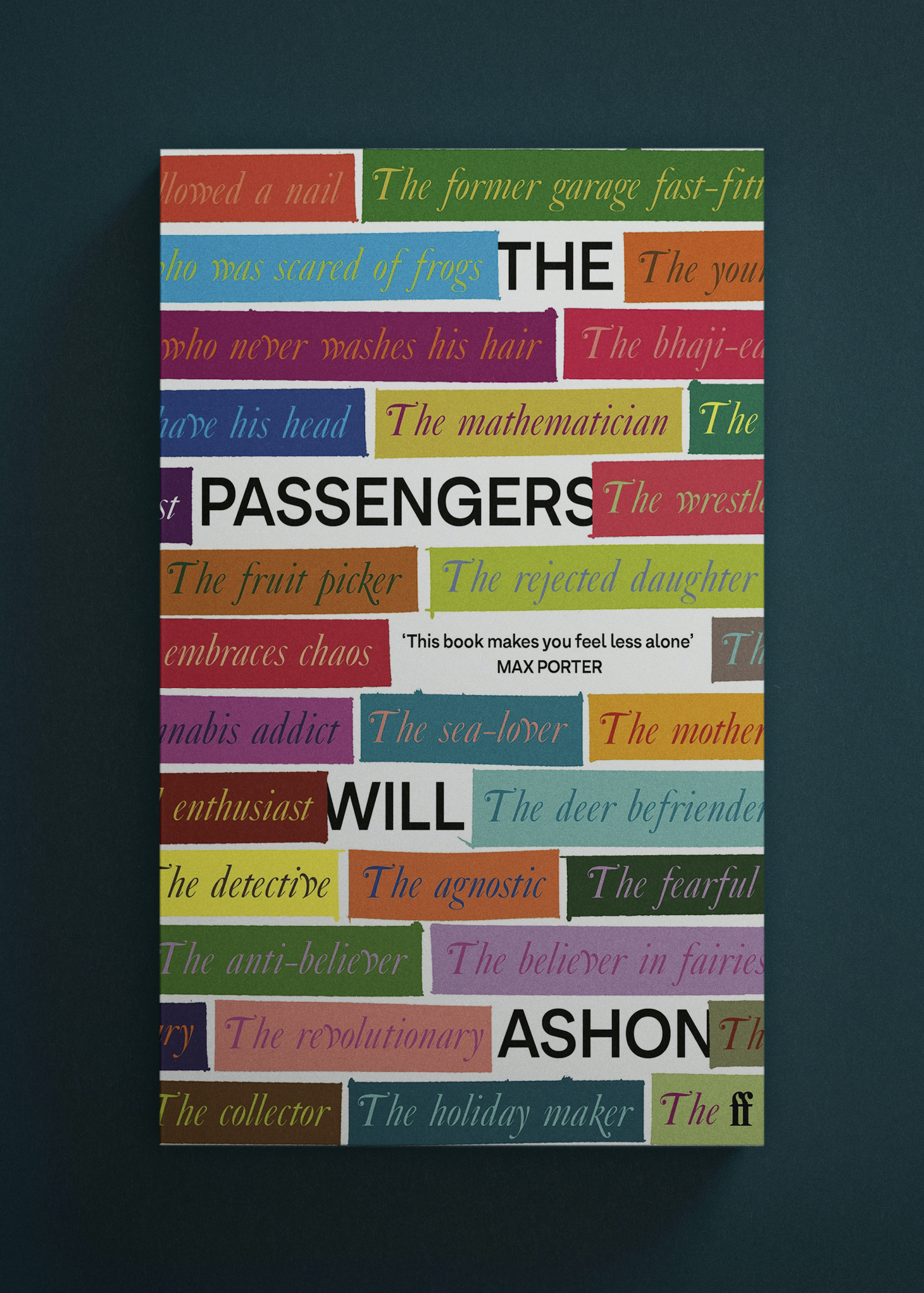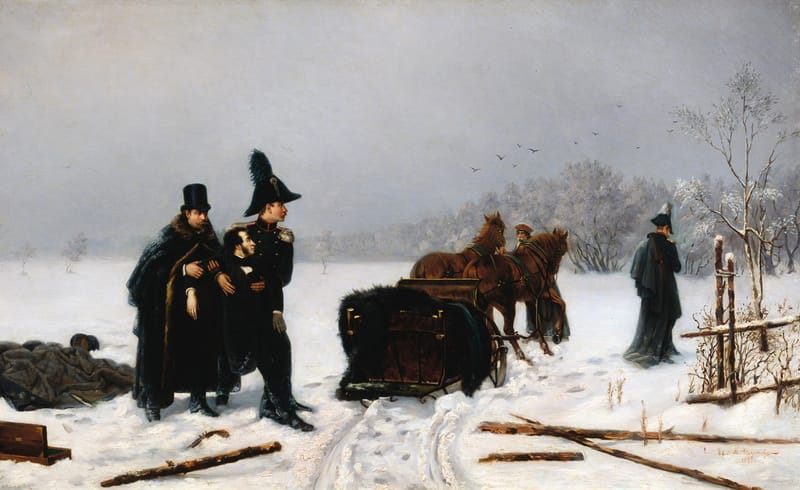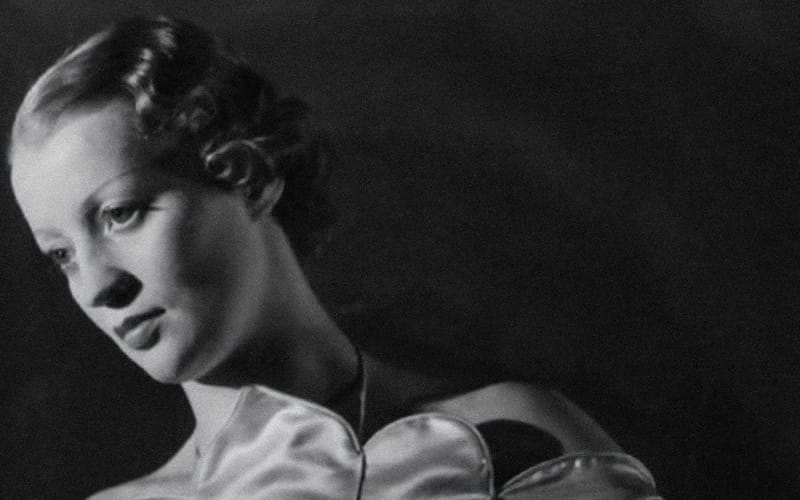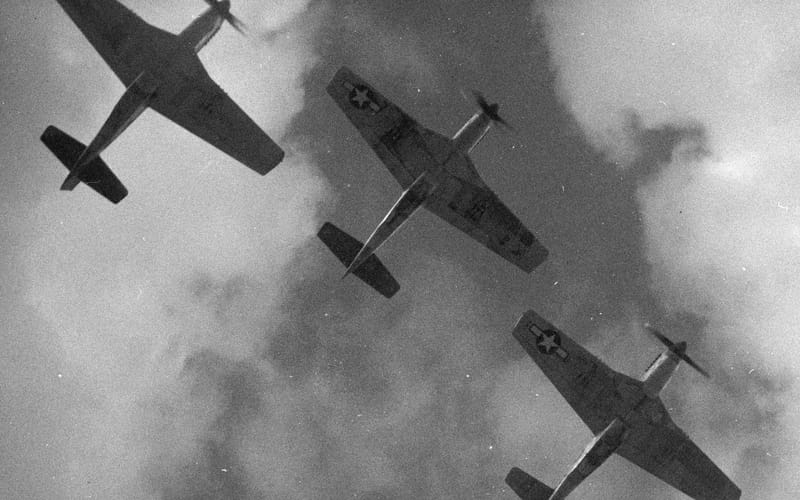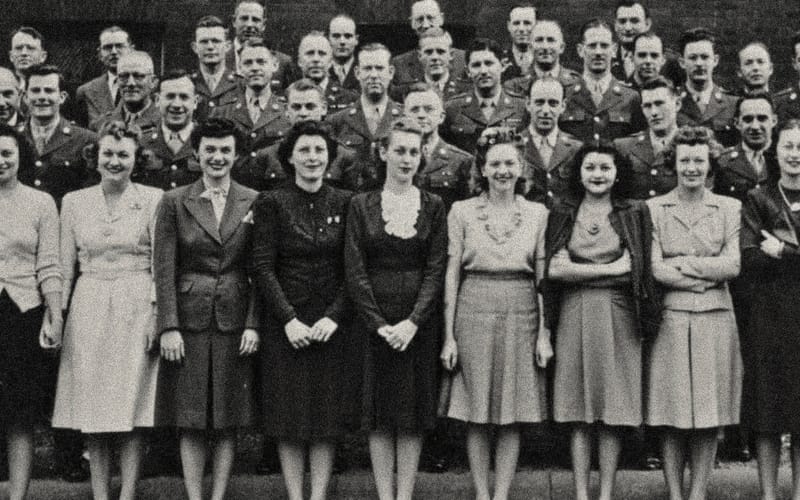Excerpt: The Passengers by Will Ashon
How we give shape to our lives, find meaning in the chaos, acknowledge the fragility of our existence
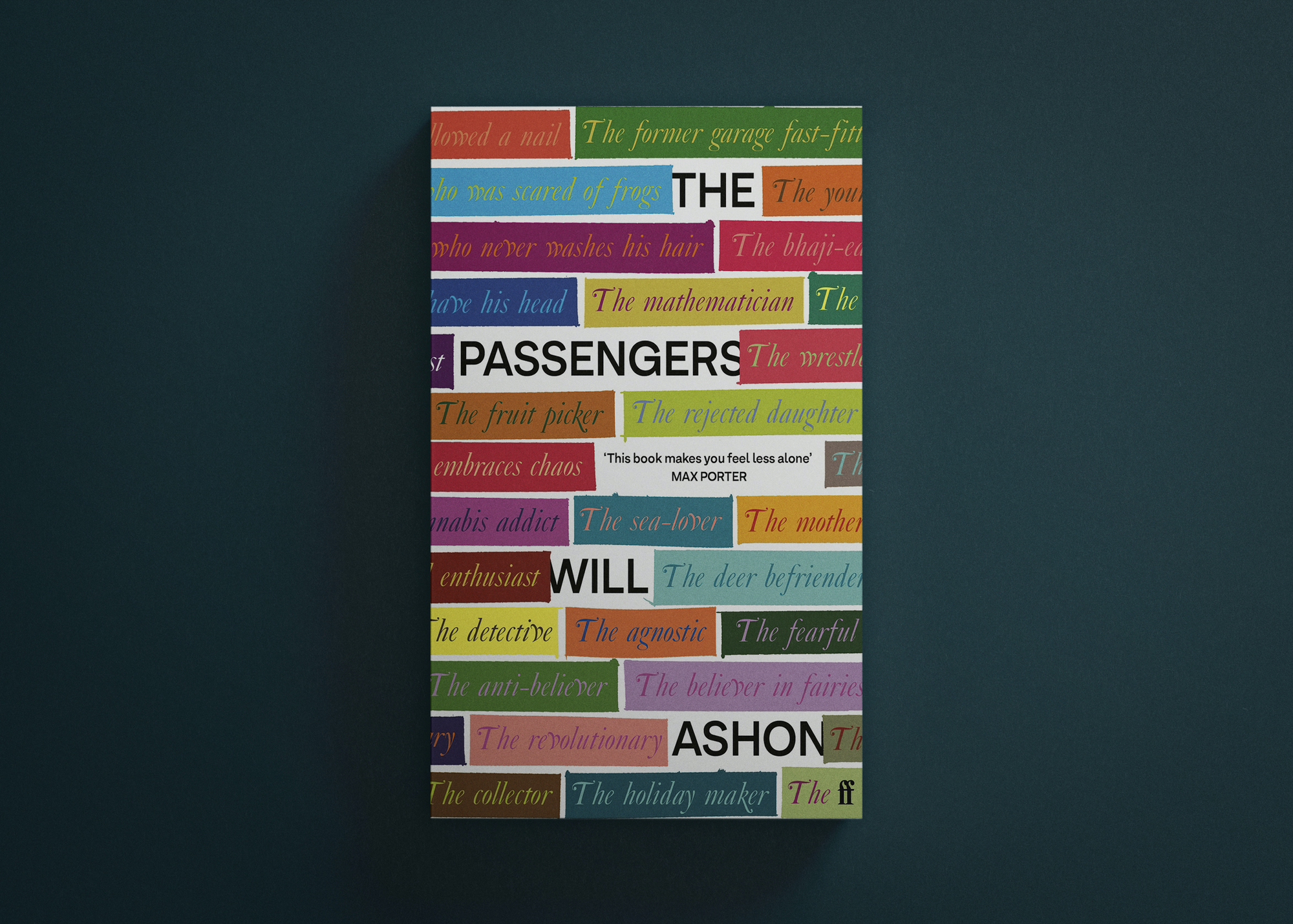
Between October 2018 and March 2021, Will Ashon collected voices – people talking about their lives, needs, dreams, loves, hopes and fears – all of them with some connection to the British Isles. He used a range of methods including letters sent to random addresses, hitchhiking, referrals from strangers and so on. He conducted the interviews in person, on the phone, over the internet or asked people to record themselves.
The resulting testimonies tell the collective social history of what it feels like to be alive in a particular time and place – here and now.
With an exclusive foreword for Unseen Histories by Will Ashon

It’s odd to see these sections on their own without their neighbours. They seem a little bit exposed, ever so slightly defenceless. I worry for them out there, being read without the company they came with. There’s some solidarity implied when you see the chapters all lined up together, shoulder to shoulder—as if each is supporting its comrades to each side, like Roman legionaries locking their shields together. I suppose, in a way, that points to what ⇲ The Passengers is. Not so much an oral history (of now, then, or indeed tomorrow) as a collective or inter-subjective attempt to describe what it feels like to be alive. In a way, that’s something that can only be hinted at, or which only takes shape as an absence, so that the meaning of the book is found by the reader in those spaces between everything that’s said. So yes, it’s somewhere nearby when someone talks about the history of their activism in Northern Ireland, or when an ex-squaddie describes being blown up in Afghanistan, but it’s just as close when a third contributor tells us about her collection of pineapple ephemera. There’s no hierarchy of significance, just the strange, sometimes painful miracle of being alive and conscious of being alive. And, panning back even further from our puny existences, none of it more important or beautiful than algae illuminating the night sea.
— Will Ashon
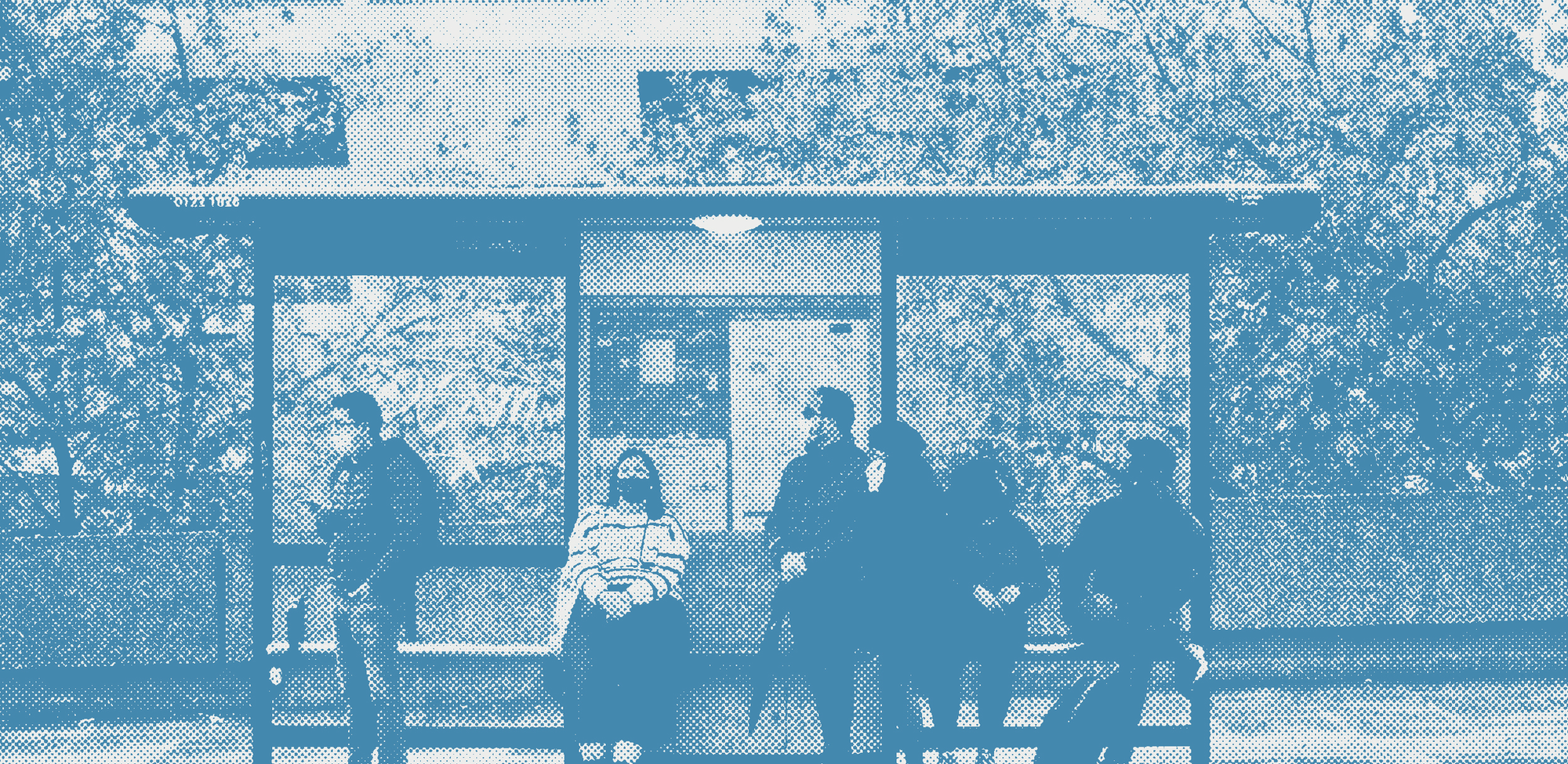

Testimonies
An abridged excerpt from The Passengers by Will Ashon
93.
Me, I am an elderly person, as they say. Came from a rural area, went to Belfast at the end of the sixties, there began my life of believing the revolution was just gonna happen, there and then. I still believe it’s gonna happen but it mightn’t happen here, and it mightn’t happen in my lifetime [laughs]. I went to uni, became involved in what would now be described as community activism and leftwing politics. For most of my early adult life, we used to think it would be great if we could live to forty. I remember thinking when I got to fifty, How did I get here? And now that I’ve hit seventy, I think that I definitely am one of the lucky ones. I think of the utter and appalling waste of life during our sordid sectarian squabble, aided and abetted by an establishment that thought, Well sure, if we just keep them at each other’s throats . . . And that’s being benign about their attitudes. I hate and resent that the solution to ending the violence was institutionalising sectarianism in our political life but I didn’t have a better way of ending the violence, you know. That was very hard to swallow. And I think everything that has followed in terms of political behaviour has probably told the world yet again that power sharing is not necessarily a great model of sound political structures, you know [laughs].
What do I want? I want a more equal world, that’s for sure. In every part of it, including this little sectarian mess hole that we have, right through to the world stage. Because if this virus hasn’t underlined that reality for everybody, we’re all in trouble. Inequality arises from how systems and states and nations and the world is organised, and while some years ago we might all have thought you change the capitalist system to a socialist system and everything will be hunky-dory, I think that has long evaporated. But there are a number of steps. Making sure that every child has as good a start in life as is humanly possible. Interventions to assist families, whatever their structure, to get their heads around how to manage with children and providing support to enable those kids to have the best nutrition, to have the best opportunities for eating, to have the best opportunities for socialisation, and for different experiences. That’s at one end, and at the other end of the scale, you have to do something about income inequalities. Unequal societies are more unhappy than more equal societies. You work out what you think is a reasonable income distribution from top to bottom and then you say, Yeah, we’ll keep our wages on that scale. Possibly one of the things that might evolve out of this virus, you know—because good things do come out of bad things— we might go some way in some countries to establishing a universal income, because economies have been so crushed. And that would be no comfort to those who’ve died and have caught the damn thing, but it would be a gain for future generations, I think.
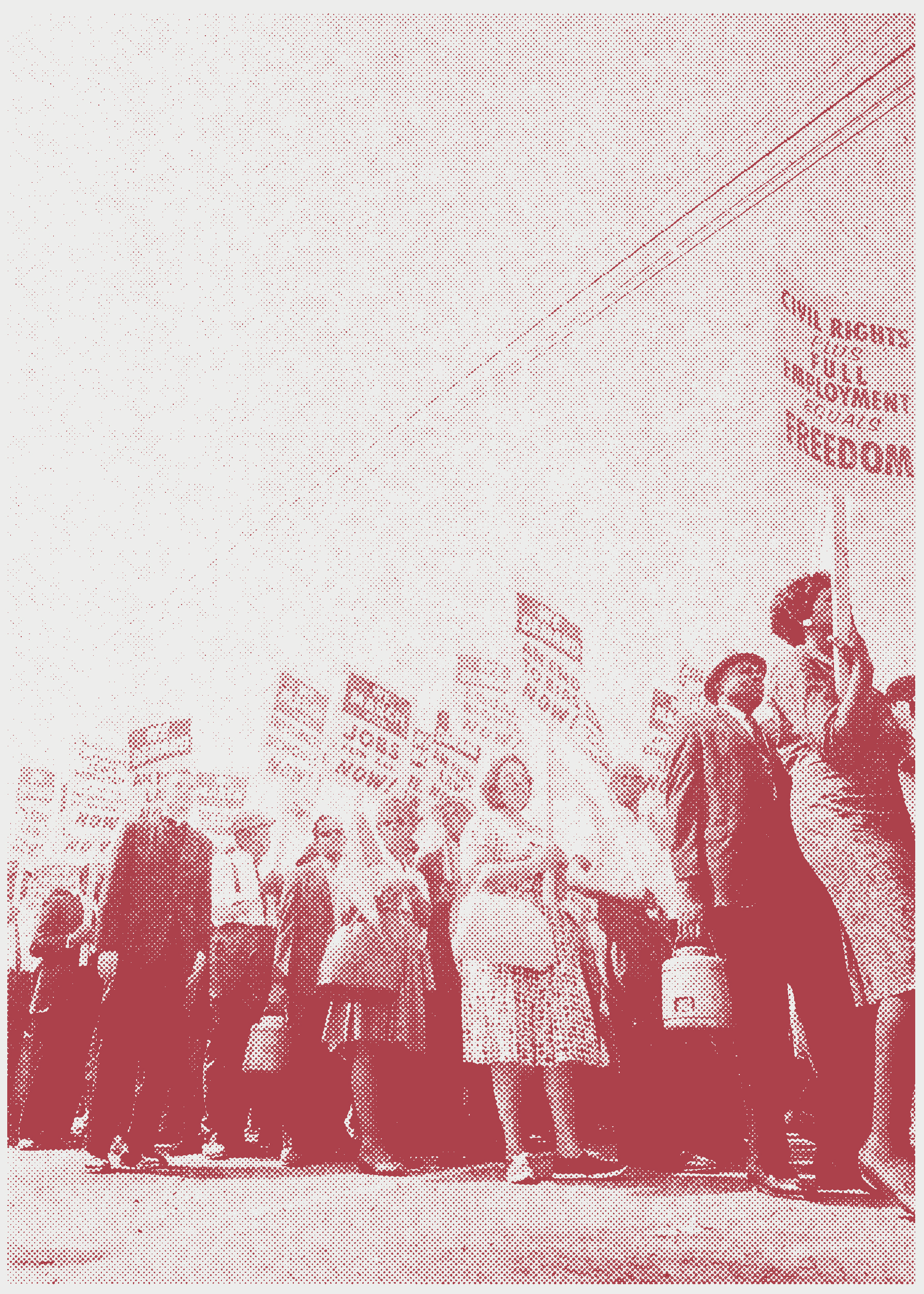
There’s a huge gap between what people think they’re going to get out of protests and what they actually get. I do think, certainly at the end of the sixties, the student view was change just happens because we are on the streets demanding it [laughs]. How noble and naive were we, you know? But that’s the revolution, the unfinished business of all of our hearts’ desires for a better world. And in truth, the other part of that is that there is no such thing as a finished and completed revolution, because if you don’t continually keep at it, you lose it. So the revolution has a bit to go [laughs]. Just a little bit, just a little bit. I don’t know what difference the technological revolution makes to all of this, you know. Not being a techie person, I don’t see much good of it [laughs], but that could be a bias on my part. I have no idea whether what’s happening in the world of technology contributes to the revolution or the counter-revolution.
Let’s talk about hope. Your life is hope, the fact that you’re living is hope. The fact that we don’t want to die, however inevitable it is, is hope. I mean, I think it will be hard for any future generation to make as bad a mess of the world as we have made of it. In global terms, I really do think, in the West anyway, we screwed up everything we were given. I don’t say we as a collective, but society screwed up everything it was given and refused to learn lessons. I think future generations might be less cavalier, shall we say, about how they live and order their lives. And hope is that—I don’t like these words, good, bad, and all that—but that there is enough goodwill and good intentions and sound minds in the world to right a lot of the wrongs. We’ve gotta find a way to harness some of the social solidarity that has come through bad experiences and drive that forward into betterment of things as opposed to just preventing bad things. That would be my big hope— that we find a way to harness solidarity and cohesion and standing together to improve things that are within our grasp in whatever setting we are. That will have to be doable, you know. That will be doable, yeah.
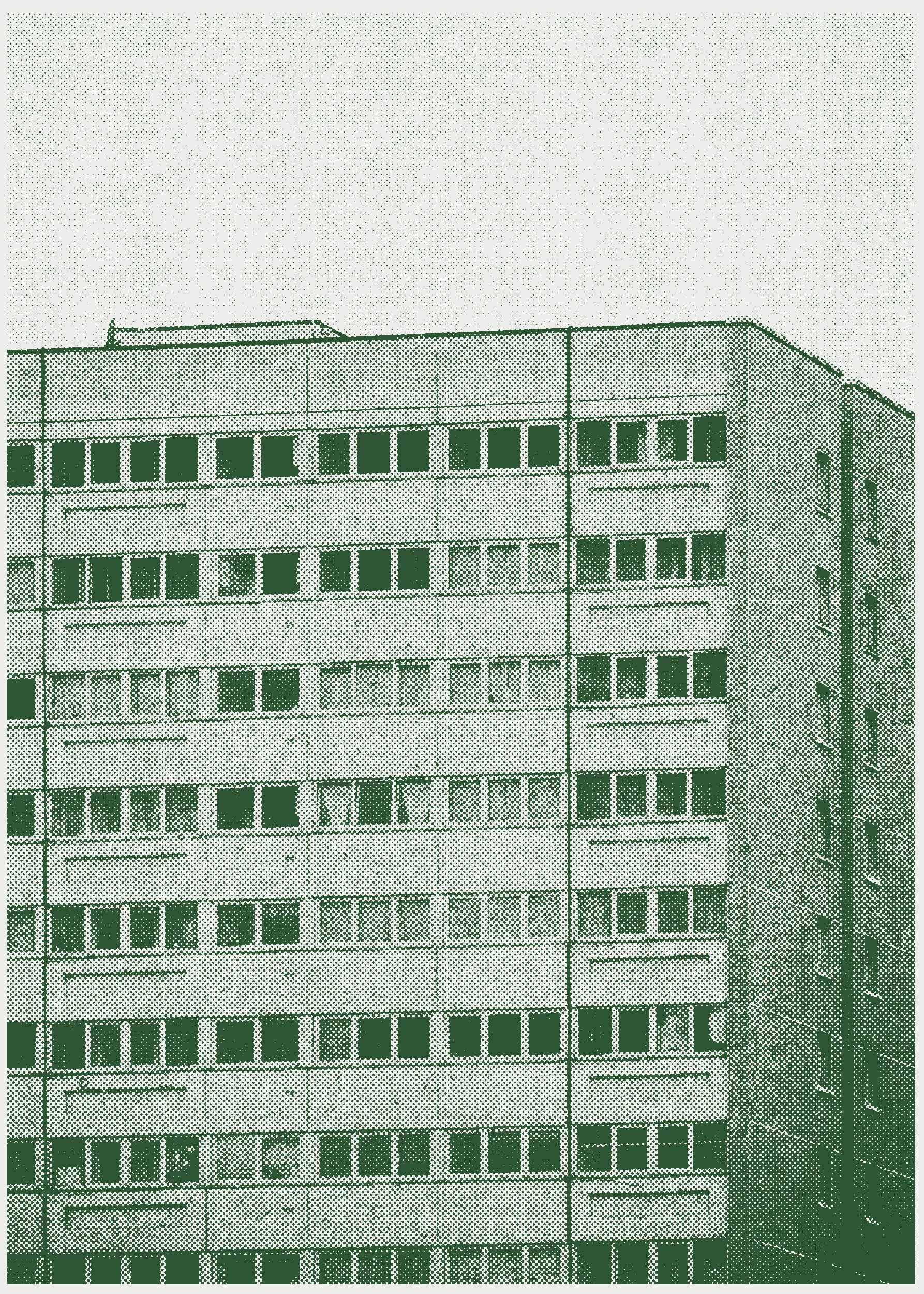
96.
The estate I live on it was sort of half council and half private and we was the council side. We were the rough and readies, just herberts, little street herberts, really. We didn’t mix with the other lot. Not that we were poor, we were just on the poor side of the tracks. We was out stealing bikes and just being arseholes really. The older kids were doing it, you just went with it. A bit of peer pressure, I suppose. Got caught a few times, went to court, youth court. Got caught in a car. I wasn’t even driving it. I was just a passenger. They still throw the book at you. I tried to get out of it. I think it was my solicitor who said, Tell them you’re joining the army, that’ll keep you out of borstal. I said I was joining the army to keep out of borstal and it just happens one of the judges was a cadet leader and he goes, Well, I’ll keep an eye on you. I want you to bring your papers to me next week. You try to get out of something, you try to blag it, and it shot me in the foot. I thought, I’ll give it a whirl. And signed up. Again, had no intention of turning up. Turned up. Loved it. Absolutely loved it.
Yeah, Northern Ireland, Bosnia. Then more recently, I left and I got called up as a reservist in 2003. Went out to Iraq in 2003 as a reservist, and I went to Afghanistan in 2006. I didn’t know they could do it. Letter come through my door and I thought it was a joke: Yeah, whatever. I called them up and they went, Nah, you need to go to Nottingham. They weren’t recruiting properly. They were short of people. They give you a rail ticket one way. It’s called a travel warrant. They said, If you don’t wanna go, you don’t have to go. They called up five hundred people and they rejected roughly half. And then as it goes on, they rejected more and more. Some woman turned up, she had two kids, she was told she had to go and she said, Well, who’s gonna look after these? I’m a single parent. One bloke turned up, one leg. Lost his leg in a motorcycle accident. There was a bloke had been called up, he was eighty-six years old, he was an ex-veteran of Korea, and he got called up by mistake. He was in the newspapers and everything. He was in my unit! He was game! He wanted to go! He said, I’ll do it! We had one bloke, he was about twenty-seven stone.
I was in Iraq for eight months, it was quite a long tour that. Especially as someone that’s a civilian now. You know, I been out fifteen years! Afghanistan, I was only out there for six weeks. I got hit with a bit of shrapnel, on an IED. Yeah, driving a lorry. It’s a roll-on roll-off, a bit like a Biffa bin lorry, but a military one. It’s soft skinned, it’s a fibreglass body, so when the bomb went off, the vehicle in front of us, it shattered everything. They welded these plates in, a bit sort of World War Two-ish really. We never had armoured vehicles. They have now. Everything’s armoured out there. But when I was there it was all soft-skinned stuff. Truck I was in, the cab was fibreglass. It’s got a bit of protection but it’s not really meant for driving over bombs, or driving into firefights and things. The bullets just go through it. They put these two metal plates in for a bit of protection. But we called it the Coffin [laughs].
They’d packed [the IED] with ball bearings, glass, anything else they can get in there—stones, anything. It just came and shattered the whole lorry really. It was a shell, this one was, they said, an old Russian artillery shell. They just put a detonator wire on it and explode it. It just erupts. I remember it going really dark really quickly and then really light again, that’s all I remember. That was basically the earth and mud shooting up in the air. It was instant, like lights on, lights off. It was so quick. I didn’t even realise I was hit. You know, the windscreen had gone, half the cab had been shot off. Bloke next to me, he was hurt worse. Didn’t know him. It was only really when my boot was filling up with blood and I went, What’s going on there? —then I realised. Went down, felt it. It’s come straight through the side of the truck.
It’s not too bad. Bit of metal stuck in there. Dunno what it was. They got it out. No, no one was killed. We were lucky. We were so lucky. The vehicle in front, they were all a lot worse off than I was. One amputee, he lost a couple of legs. One of them got a head wound. I was in hospital in Bastion and then Medivacced out, sent home. That was it. Nah! Nah! No. Nah, nah, they pay you your wages and as soon as you leave that’s it. You’re a reservist. See you later. Bye, thanks!
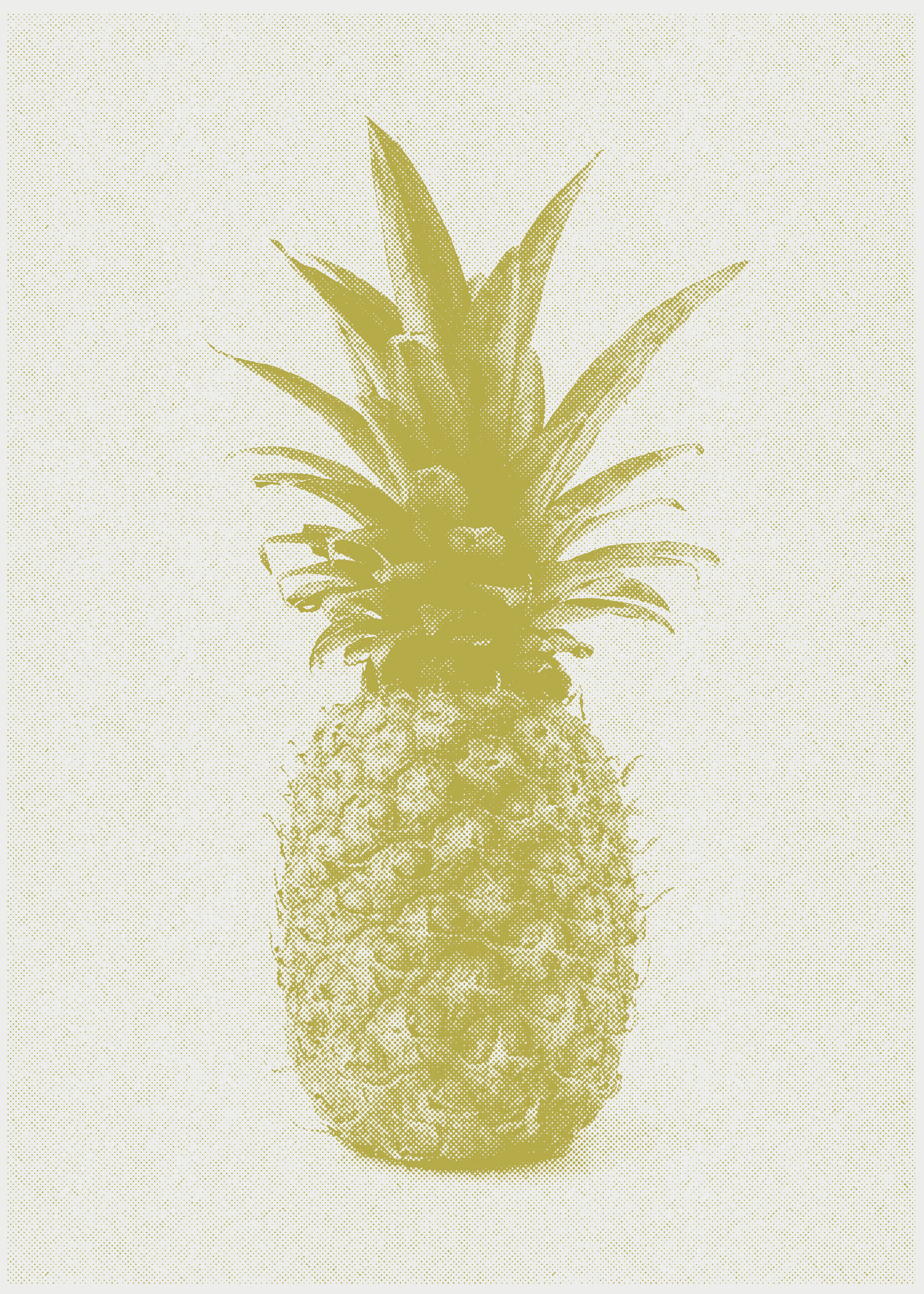
130
I started collecting pineapple ephemera about thirty years ago. It was a pineapple Britvic ice bucket that nailed it. I went to boarding school and I used to go and stay with a friend at her parents’ place. It was a very lovely house, they had beautiful antiques, it was a very old house. And then you went into the kitchen and it was suddenly very modern, and they had this plastic pineapple ice bucket. This was back in the early seventies. And I remember thinking—a rather snobby little twit, I was—thinking how very vulgar this thing was, in this very elegant house with its Persian carpets and lovely things. This naff pineapple ice bucket. But years and years later, I went to visit a friend, and she had one on a window sill, and I was like, Oh! My god. I remember that! Actually it is a rather fabulous thing. And they said, Well, you must have it. So I took it away with me, and then some time later I was down in Bristol, I went into a shop, and there was a pineapple light. So I bought that. And I have, I’ve got an enormous, a really huge collection—hundreds and hundreds of pieces of pineapple ephemera.
Kitsch is such a glorious thing, isn’t it? I like the kind of over-the-top-ness of the whole pineapple thing. But they can be also extremely tasteful. They don’t always have to be brash, there are some very elegant things, and I have some very nice pieces of pineapple jewellery. I have a beautiful huge piece of Mexican folk art, which I had shipped back from the States. And actually, as a gardener, in the horticultural world there are plants that aren’t pineapples themselves but look very much like a pineapple and I’m looking at one at the moment in the garden. It’s a bulb called the Eucomis. It’s a really beautiful flower with a spiky top to it.
Truth be told, we all have a collection in the waiting, because one of something doesn’t mean anything, does it? Maybe you have two, maybe you have three, then you’re off. I don’t really ever have to buy them anymore because my friends go travelling and they see something, and over the years the collection has just grown and grown and grown. But more than anything, it really touches me, because people come back from travels around the world and say, I saw this and thought of you. There are these tentacles now, there are these threads amongst us all, there is this connection, as ridiculous as it is ■

The Passengers: Shortlisted for The Rathbones Folio Prize 2023
Faber & Faber, 4 August 2022
RRP: £14.99 | 384 pages | ISBN: 978-0571364145
An original and profound portrait of contemporary Britain told through the testimonies of its inhabitants.
Between October 2018 and March 2021, Will Ashon collected voices - people talking about their lives, needs, dreams, loves, hopes and fears - all of them with some connection to the British Isles. He used a range of methods including letters sent to random addresses, hitchhiking, referrals from strangers and so on. He conducted the interviews in person, on the phone, over the internet or asked people to record themselves. Interview techniques ranged from asking people to tell him a secret to choosing an arbitrary question from a list.
The resulting testimonies tell the collective story of what it feels like to be alive in a particular time and place - here and now. The Passengers is a book about how we give shape to our lives, find meaning in the chaos, acknowledge the fragility of our existence while alleviating this anxiety with moments of beauty, love, humour and solidarity.
"A nation's psyche comes to the surface. The Passengers is not just an oral history of the contemporary moment but, drenched in mood and texture, renders the country itself as a sonic collage." – Sukhdev Sandhu, Guardian
"A magical mystery tour of Britain . . . extraordinary" – Daily Telegraph
"A spectacularly enjoyable and compelling reading experience . . . funny, moving, surprising and thought-provoking. It humanises literature in this toxic moment" – Max Porter, author of Lanny
Illustrative material for this excerpt is not necessarily included in the book.

Additional Credit
With thanks to Josh Smith at Faber.


